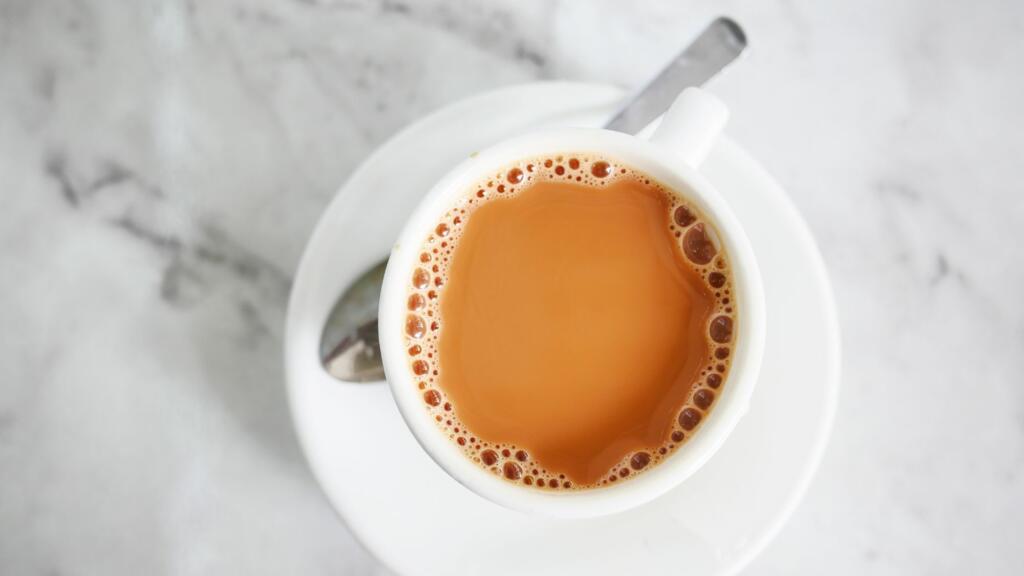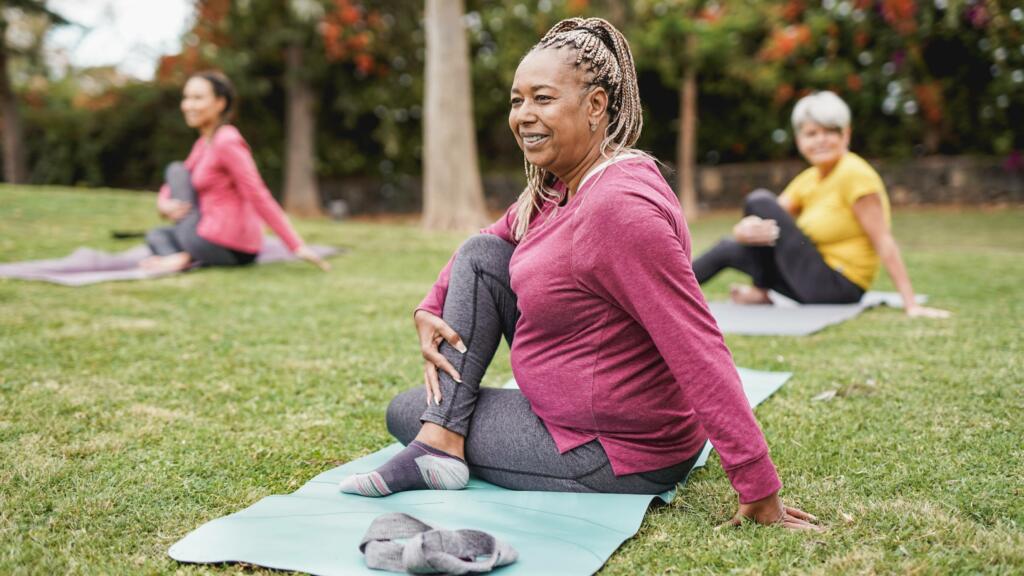
How to maximise the health benefits of your cup of tea
Julie Penfold
A simple glass of water could be key to keeping you on top form.
The human body is made up of 55% to 70% water, depending on your age. So it’s not surprising that drinking enough and staying hydrated is crucial to keep your body functioning at its best.
And as we age, this could be more important than ever for helping us to live a longer and healthier life. Results from a recent study suggest that people who are sufficiently hydrated may be less likely to develop chronic illnesses or show signs of ageing.
The human body is made up of 55% to 70% water, depending on your age. So it’s not surprising that drinking enough and staying hydrated is crucial to keep your body functioning at its best.
And as we age, this could be more important than ever for helping us to live a longer and healthier life. Results from a recent study suggest that people who are sufficiently hydrated may be less likely to develop chronic illnesses or show signs of ageing.
 Credit: Shutterstock/DisobeyArt
Credit: Shutterstock/DisobeyArtResearchers analysed sodium levels in the blood of 15,700 adults, aged 45-66, for 25 years. Drinking water is important for maintaining normal sodium levels, so the amount of sodium in someone’s blood can be used to measure how hydrated they are.
Findings showed that people who had the higher end of a normal range of sodium in their blood had a 39% greater chance of developing chronic illnesses. They were also 50% more likely to have biological markers of age older than their chronological age. Chronological age is the number of years you’ve been alive, while biological age refers to the physical age of your cells and tissues.
Lesley Carter, a registered nurse and programme lead at the Malnutrition Task Force, which is supported by Age UK, agrees. She explains that not having enough fluid can cause an imbalance of electrolytes, such as sodium, which can affect your overall health. “Drink around six to eight glasses or 1.5 litres of fluid per day,” she says. Your fluid needs can vary and depend on a variety of factors, including your age, lifestyle, body size and climate.
Authors of the study did note the need for more studies to confirm the link between hydration and ageing.
Our top tip for staying hydrated
Download a water tracking app to keep tabs on how much you’re drinking. Water Tracker – Water Reminder is available on Android and Water Tracker – Drink Reminder is available on Apple devices.
 Credit: Exceptional
Credit: ExceptionalStaying hydrated can provide many benefits for your health.
Carter says: “Fluid is not just about water. If you don’t like water and the thought of drinking eight cups is beyond you, you could have soup or custard.” She also suggests a cup of tea or coffee, or a stew with gravy, as alternatives.
“Make it work for you. Have things that you enjoy and you can manage.”
While there is no need to panic, it’s important to be aware that not drinking enough can lead to serious consequences for your health.
Carter says that it can take just two days for an older frail person to show lots of signs and symptoms associated with becoming really dehydrated.
Drinking fluids regularly throughout the day, aiming for at least six to eight glasses. Having a glass when you first wake up and before each meal can be a good way to help with this.
Carter provides support on how you can do this, whatever your lifestyle or age.
Research has suggested that milk could be a better hydration fluid than water. However, experts say these studies have limitations, such as small numbers of participants and unreliable ways of measuring hydration. Milk does contain calories, which is worth bearing in mind if you’re trying to control your weight. More research is needed to confirm whether milk rehydrates better. Meanwhile, tap water is cost-free and calorie-free. Carter says drinking water isn’t the sole solution to staying hydrated and that any fluid counts.
 Credit: Shutterstock/JLCo Ana Suanes
Credit: Shutterstock/JLCo Ana SuanesSome older people or those with chronic illnesses, such as dementia, can experience issues with drinking enough fluid.
Carter says: “As you age, you don’t necessarily feel as thirsty or the need to drink as much as you did when you were younger.
“Some people don’t realise how important being hydrated is.”
Another issue, she says, is that those with a weak bladder may worry about being incontinent and choose not to drink so much because of that. But Carter explains the idea that reducing fluid intake will reduce the amount you’re peeing is a myth.
“When you drink less, your kidneys overact, and this can make you pee even more.”
Carter says people with dementia may have forgotten that they haven’t had a drink or that they need to drink throughout the day. “If they’re living alone and they haven’t got any reminders, they won’t drink.”
Carter’s top hydration tips for older people or those with chronic illnesses
Alzheimer’s Society has more tips on supporting a person with dementia to drink enough.
Carter’s top takeaway? Get your equivalent of six to eight glasses of fluid per day. “If you don’t reach eight glasses one day, don’t beat yourself up. Start again tomorrow.”
The Malnutrition Task Force has more advice on managing hydration.
Lesley Carter is a registered nurse and clinical lead for Age UK. She works in Health Influencing and leads Professionals and Practice and the Malnutrition Task Force. Previously, she worked within the Department of Health as the London Lead for the development and implementation of the National Dementia Strategy.

Written by Gemma Harris she/her
Published: Updated:
Gemma Harris has been a journalist for over seven years and is a self-confessed health and wellbeing enthusiast, which led her to specialise in health journalism. During her career, she has worked with top editors in the industry and taken on multiple high-discipline fitness challenges for certain outlets. She is particularly passionate about nutrition; after being diagnosed with irritable bowel syndrome in 2016, she discovered her fascination for gut health and founded thegutchoice.com – a dedicated space for providing a hopeful outcome for people with gut issues. Gemma’s core aim is to help others through her writing.

Julie Penfold

Becky Fuller

Becky Fuller

Phillipa Cherryson

Becky Fuller